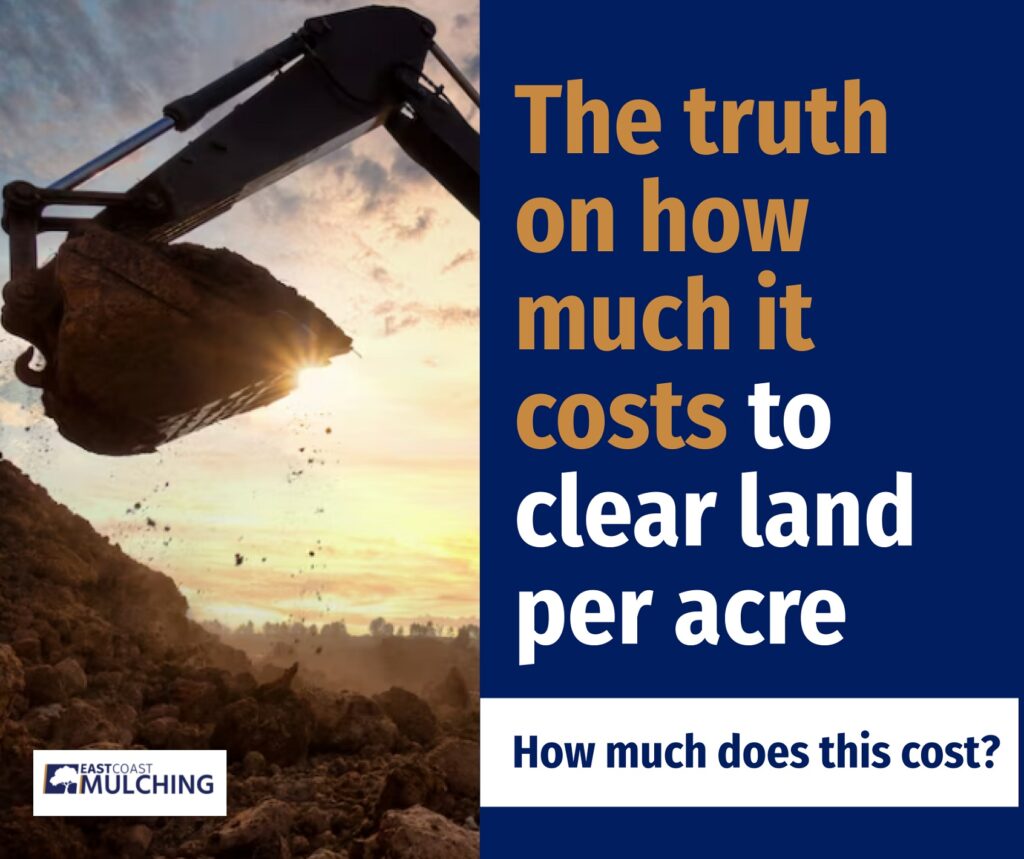Land clearing is a critical part of any development project. Clearing allows for increased safety and productivity. Clearing can work harmoniously with the environment if conducted correctly.
Agriculture is a significant industry in Australia. From the earliest European settlement to becoming a developed nation, clearing forests for farming has been essential to Australia.
Land clearing for agriculture is crucial for its survival, especially in Eastern Australia, where most of it occurs. Queensland is currently the leading state in this practice. However, agricultural land clearing can have negative effects, but these can be mitigated with the right clearing techniques.
Key takeaways
- Land clearing develops land into usable space for crops or livestock.
- Clearing competing vegetation ensures crops have better access to soil nutrients.
- Weed management through land clearing protects crops and livestock from invasive species.
- Poorly managed land clearing may damage vulnerable ecosystems.
- Improperly clearing land can lead to soil infertility and erosion.
- Forestry mulching protects against erosion and contributes to soil fertility.
Agricultural benefits of land clearing
The agricultural industry depends on land clearing in many ways. This has made agriculture a primary driver of deforestation.
Usable land
Australian farmers produce food to support significant populations. They are the fundamental source of food for local consumption. Whether growing broadacre crops or raising cattle, agriculture needs lots of space.
Farmers also support a massive export market to the world. The value of exports reached $75 billion in 2023-23. This makes agricultural products one of the biggest exports in Australia. Supporting these exports means freeing up cleared land for agricultural expansion.
Land fertility
Arable land must remain fertile to support our massive food production. Non-production native vegetation like trees, shrubs and grasses take up nutrients needed for crops. Land clearing for agriculture helps to prevent this competition.
Weed management
Land clearing is a critical part of weed management. Weeds cause significant issues in agricultural production. A Centre for Invasive Species Solutions report estimated that farmers spend about $4.8 billion yearly on weed control. That’s a massive $13 million per day.
Weeds, like noxious weeds, cause all kinds of problems. Eating weeds may lead to severe health complications or even death. Livestock can be at significant risk if a toxic weed invades a pasture.
Weeds may outcompete and suffocate crops. Invasive plant species can also attract other pest species, such as insects.
Drawbacks of land clearing for agriculture
While it is essential to agriculture, improper land clearing can lead to long-term problems.
Ecosystem disruption and forest degradation
Land cleared with poor planning can put vulnerable ecosystems under pressure. Forest loss and habitat loss for threatened species may cause knock-on effects on the environment and economy. Many native species face extinction due to unchecked clearing of forest cover.
Reduced biodiversity and woodland can combine with the impact of climate change. The future environmental effects may be severe.
Soil infertility
Uprooting vegetation to make way for land grading can harm the soil. Soil often relies on root systems to maintain its integrity. If this integrity is compromised, the soil may become loose and susceptible to being washed or blown away. Previously arable land will become infertile and at risk of flooding as it won’t retain as much water. Such land degradation is almost impossible to reverse.
Ground that’s unable to retain water can cause further issues on agricultural land. Fertilisers and herbicides are more likely to run off into waterways and poison fresh water and the local environment.
Benefits of forestry mulching
The characteristics of forestry mulching enable it to avoid these negative impacts.
Mulching contributes to soil fertility. The mulch layer created after shredding vegetation protects against erosion. Wind and rain are less able to affect the ground. Mulch also enables the soil to retain moisture better, increasing a crop’s ability to take up nutrients.
When the mulch decomposes, it will add organic material to the soil and increase the nutrient content. Since the nutrients are bound up in the organic matter, mulch contributes nutrients over the long term.
Work with us
East Coast mulching can assist you with sustainable land clearing for agriculture. Our equipment is the best on the market and can complete jobs quickly and effectively. Our local knowledge and management practices ensure your property is protected and cleared for your needs. Contact us today for a free quote.










